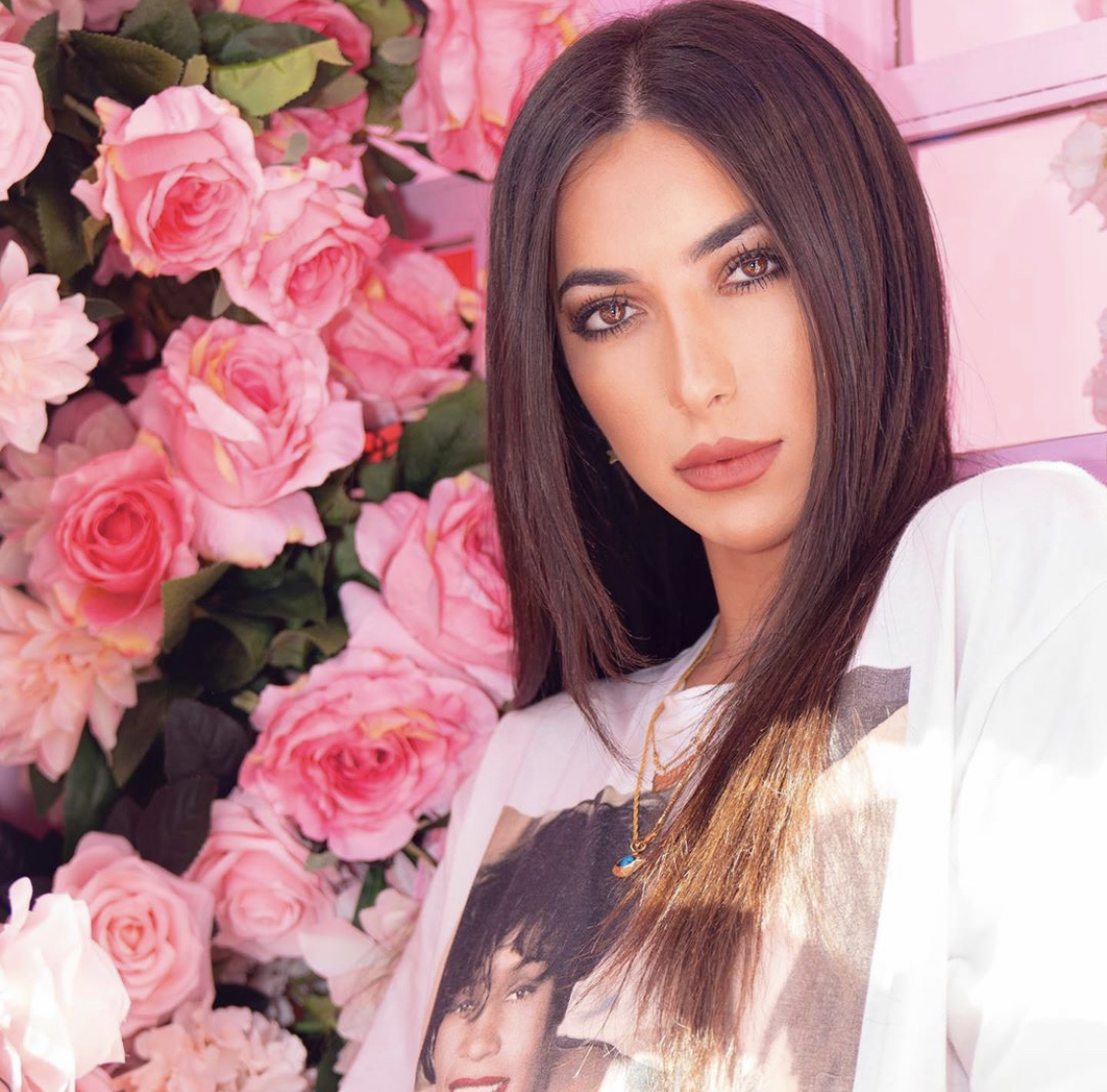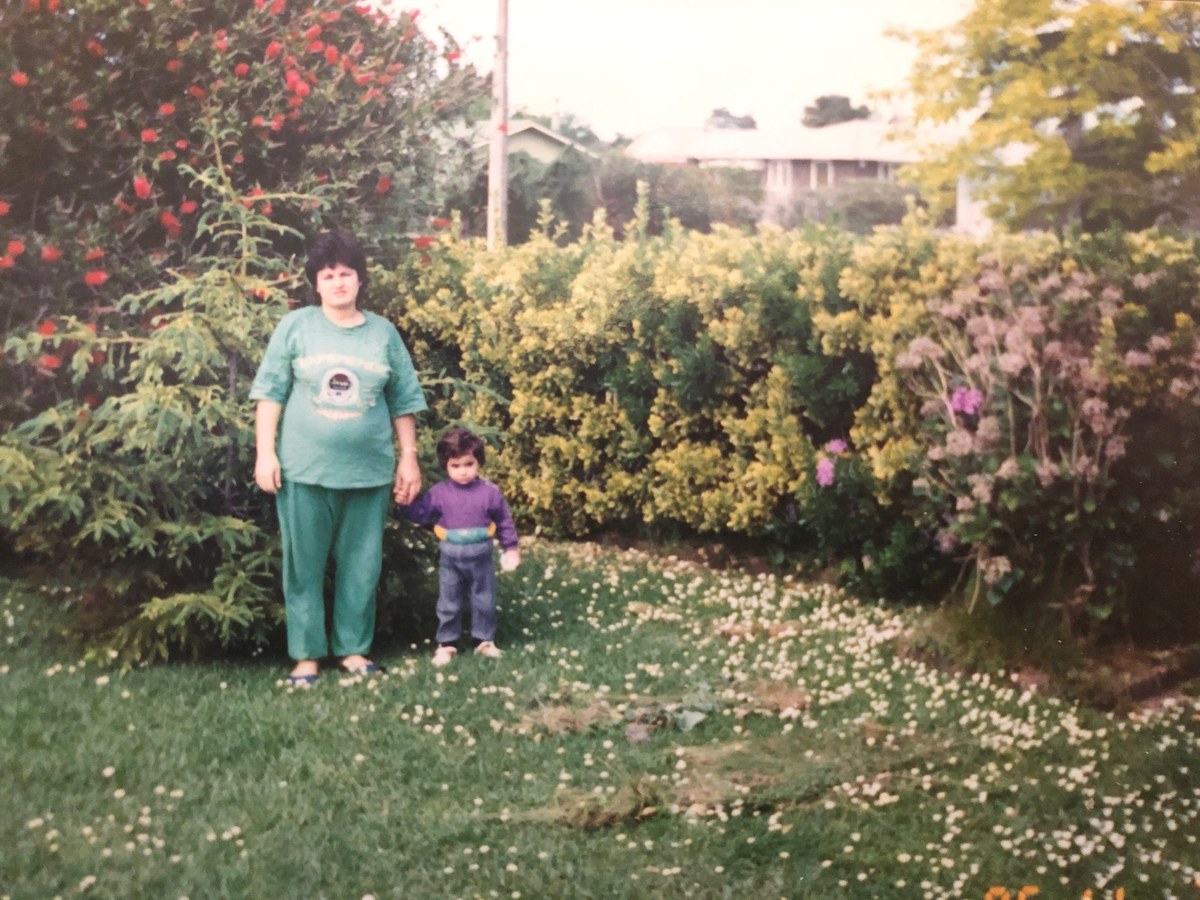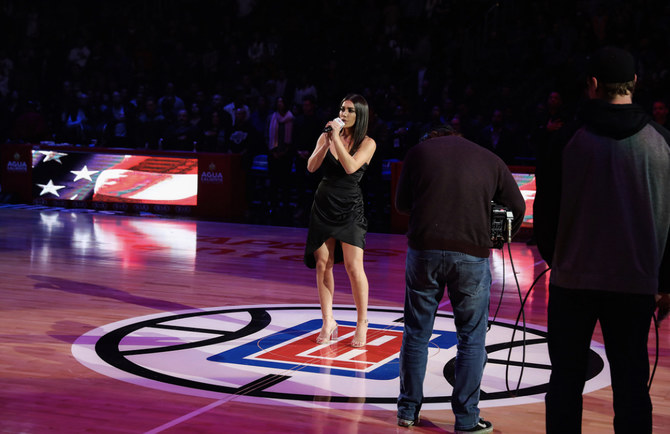DUBLIN: Vivian Nouri is a woman on a mission. The Kurdish singer — more commonly known as NOURI — has made something of a splash in recent months. Her debut single “Where Do We Go From Here” reached number one in New Zealand in March this year (it currently has more than 1.1 million views on YouTube), before topping charts everywhere from Saudi Arabia and Kuwait to Iraq and Palestine.
Her story is all the more remarkable for the fact that she was born in a Syrian refugee camp after her parents fled Kurdistan in the early Nineties. They moved to New Zealand when Nouri was three.
She cites Christina Aguilera, Britney Spears, Michael Jackson and Whitney Houston as performers who inspired her early love of music. “By the time I was seven, I would copy their singing on the TV, but I was never sure if I was doing it right.”
Turned out she was, though. At nine, in her first talent show, Nouri sang “When You Believe” — a duet by Whitney Houston and Mariah Carey for the 1998 animation “The Prince of Egypt.” She received a standing ovation. And it was a buzz she never forgot.
“The thrill of performing, the feeling of singing the song and everyone loving it, and the shock of getting a standing ovation — that I could sing and other people liked it…” she says. “I’ve been chasing that feeling ever since.”

Nouri's story is all the more remarkable for the fact that she was born in a Syrian refugee camp after her parents fled Kurdistan in the early Nineties. (Supplied)
“You never know when it’s finished, so the best thing to do is to hand it over to someone else and they will tell you when it’s ready,” she continues. “And that’s one of the best things about being in Los Anglese: being able to work both with Grammy award-winning producers as well as newer producers who are just grinding it out. You see different patterns and styles and it gives you a feel for different production styles.”
Nouri made the move to LA earlier this year, and is confident she can avoid the pitfalls that living in that city sometimes throws up. “Every day’s a learning experience in LA; I’m learning about new music, new concepts, as well as meeting new people and being exposed to new cultures and influences,” she says.
Nouri already had some experience of Hollywood glamour — she performed “The Only Gift I Need” for the soundtrack of the 2017 Will Ferrell-led comedy “Daddy’s Home 2.” And since moving to LA, she has been invited to sing the US national anthem at a few NBA games. But she’s hungry for further success.
“Where Do We Go From Here” is a perfect slice of slow-burn pop, with echoes — both in the music and the video — of Lana Del Rey. Nouri’s sound is compelling, and very modern, something reflected in her creative process.

Her debut single “Where Do We Go From Here” reached number one in New Zealand in March this year. (Supplied)
“Before I enter the recording studio, or a writing session, I have a concept in my mind of what I want to sing about,” she says. “It changes sometimes, so there has to be flexibility. I can be in the studio and hear a new beat and that will change the music, and ultimately it’s a collaboration. So we work together with the concept, starting either with the lyrics or the melody and going from there.
A big part of her drive comes from her upbringing. “My mum instilled discipline in all of us. It was hard to convince my mother that I was going to be a singer, but when she saw how hard I was working towards it, that put her mind at rest,” she says.
Nouri has spoken before about how her earliest memories are of the Syrian refugee camp, where she lived in a tent so small that her mother had to keep her feet outside it when she lay down. Those memories have undoubtedly played a major part in her relentless work ethic.
“I get up at the same time each morning, I go to the gym every day,” she says. “It’s almost like being in school with a set schedule. There’s a million other people doing the same thing, so you have to stay focused and disciplined. And so any temptations go right over my head, because I know what I have to do to get where I want.”
And where she wants to go is the very top. One of the refreshing things about Nouri is her complete honesty about her goals; there’s no circumspect mutterings about taking each day as it comes.

Nouri's family moved to New Zealand when Nouri was three. (Supplied)
“I want to be the greatest one day,” she says. “I want to leave something behind that people will remember. It’s a very competitive industry, but I’m looking to win. I am competing with myself and not with anyone else. I want to make sure I win for myself and my people and to make sure my story is heard — my story is the story of a billion other people and I want that heard. Of course, I have specific goals too, like winning a Grammy and then winning an Oscar and getting a Netflix documentary.”
That ambition goes hand-in-hand with her work ethic — for ambition is useless without drive. “I always say hard work trumps talent so when you have both, it’s inevitable, and I always feel like it’s never enough,” she says. “I get the Grammy and I take in the moment, but then I would focus on the next step, so how do I get the Oscar? Every day I am here I am serious and making sure I am taking advantage of the opportunities I have been given.”
Nouri is equally clear about what she wants her music to achieve on an emotional level too.
“I want my music to make people dance and cry at the same time. I have a hard time expressing how I feel when I speak, so my music is open instead — I express (myself) through my music,” she says.”Through my lyrics, I say the things people are too afraid to say.”




















